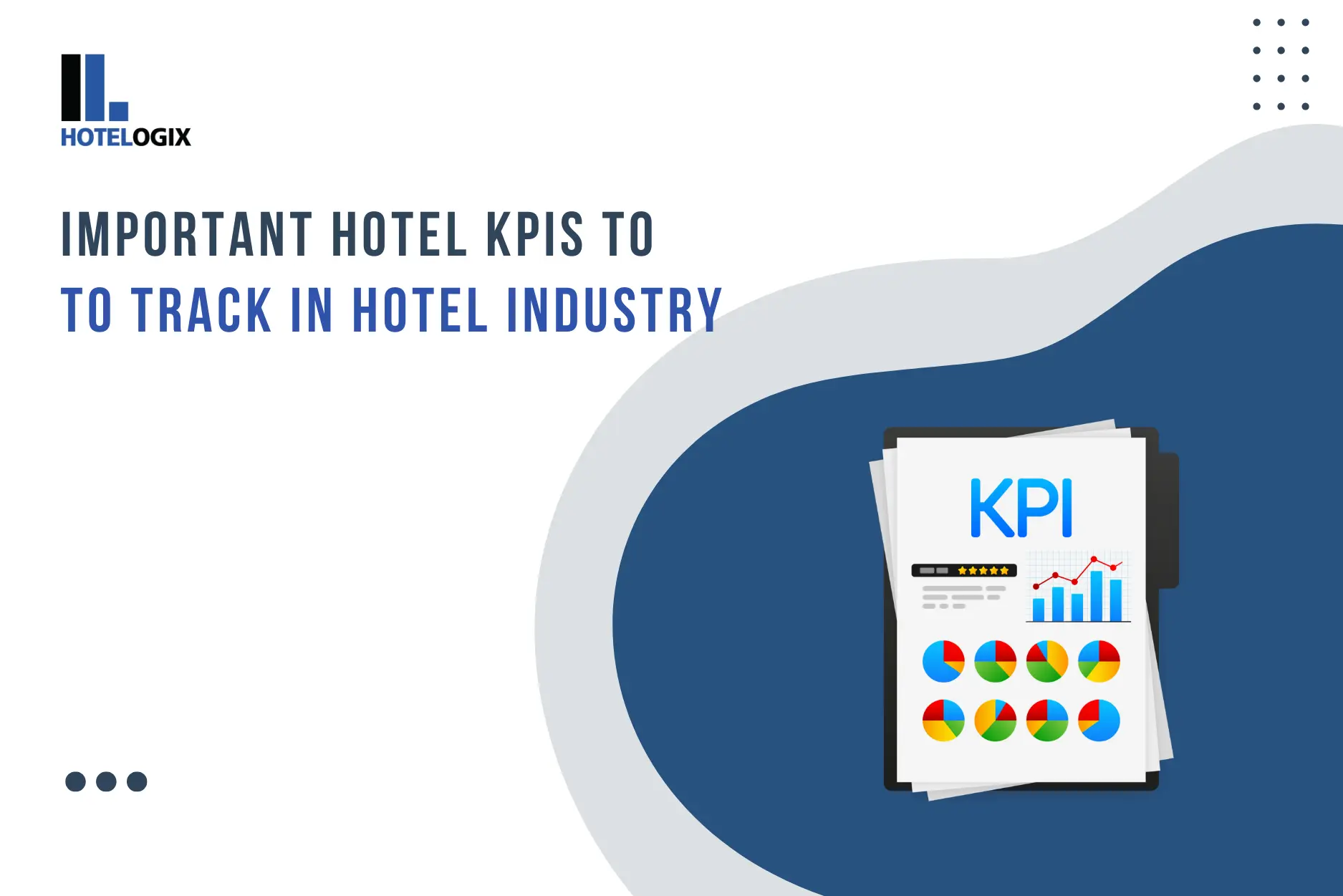Running a hotel isn't just about providing a great guest experience; it's also about understanding the numbers behind your operations. Key Performance Indicators (KPIs) play a crucial role in this process, acting as essential tools that can help hotel managers and owners gain insights into their property's performance. By monitoring the right KPIs for hotel staff and operations, you can identify strengths, uncover areas for improvement, and ultimately boost your hotel's success.
What is KPI in the hotel industry?
Hotel Key Performance Indicators, serve as crucial benchmarks for evaluating how well your hotel is achieving its business goals. These metrics span various dimensions, from financial health to guest experiences and operational workflows. Think of KPIs as the vital signs of your hotel; they offer a clear picture of your current performance and help you identify where improvements are needed. By keeping an eye on these indicators, you can pinpoint strengths and address weaknesses, ensuring your hotel thrives in a competitive landscape.
Why is Tracking Hotel Business KPIs Essential?
Keeping an eye on KPIs is important for effective hotel revenue management:
- Enhancing Operational Efficiency:Regularly reviewing operational KPIs can help identify inefficiencies in processes. For example, if check-in times are consistently longer than average, it may signal the need for improved staff training or streamlined procedures.
- Boosting Guest Satisfaction: Guest feedback is critical for any hotel. KPIs such as the Net Promoter Score (NPS) and customer satisfaction ratings provide valuable insights into what guests think about their experience. This information is vital for making changes that enhance guest satisfaction.
- Driving Revenue Growth: Financial KPIs like Revenue Per Available Room (RevPAR) and Average Daily Rate (ADR) are essential for tracking your hotel’s financial health. These metrics can inform pricing strategies and marketing efforts, ensuring you’re maximizing your revenue potential.
- Informed Decision-Making: With access to real-time data, hotel managers can make informed decisions based on actual performance rather than gut feelings. This data-driven approach leads to smarter marketing campaigns, better staffing decisions, and optimized inventory management.
- Staying Competitive: Understanding how your hotel stacks up against industry benchmarks can help you identify areas for improvement. This competitive insight is invaluable for making strategic changes that set your hotel apart.
- Monitoring Employee Performance: KPIs can also help assess employee effectiveness. Setting clear performance indicators for staff can motivate them and provide a framework for evaluating contributions.
Key KPIs Every Hotel Should Track and Their Calculation
Now that we understand the importance of KPIs, let’s explore the specific metrics that should be on your radar.
Occupancy Rate:
This fundamental KPI measures the percentage of available rooms that are occupied. A high occupancy rate is often a good sign, indicating effective marketing and demand for your rooms.
Average Daily Rate (ADR):
ADR measures the average revenue earned for each room that is occupied. Monitoring the Average Daily Rate (ADR) is essential for assessing the effectiveness of your pricing strategies.
Revenue Per Available Room (RevPAR):
RevPAR combines occupancy rate and ADR to give a comprehensive picture of your hotel’s revenue-generating ability. It’s an essential metric for evaluating overall performance.
Gross Operating Profit Per Available Room (GOPPAR):
This KPI focuses on profitability by considering all operating expenses, offering insights into how efficiently your hotel is being run.
Net Promoter Score (NPS):
NPS measures how likely guests are to recommend your hotel to others. A high score indicates strong guest loyalty, while a low score suggests areas needing improvement.
Customer Satisfaction Score (CSAT):
It tracks guest satisfaction with specific aspects of their stay, allowing you to identify strengths and weaknesses in your service.
Employee Turnover Rate:
High employee turnover can disrupt service quality and increase costs. Monitoring this KPI can help identify issues within your workplace culture and guide improvements.
Average Check-In/Check-Out Time:
Efficient check-in and check-out processes are essential for guest satisfaction. Monitoring this metric can help identify areas for operational improvement.
Average Check-Out Time = Number of Check-Outs/Total Check-Out Time
Direct Booking Ratio:
This measures the percentage of bookings made directly through your hotel’s website versus third-party booking platforms. A higher ratio is preferable, as it usually leads to lower commission costs.
Total Revenue Per Available Room (TRevPAR):
This metric accounts for all revenue streams within your hotel, providing a comprehensive overview of your financial health.
In today's data-driven world, tracking and analyzing hotel KPIs isn't just a good practice—it's essential for long-term success. By focusing on the right metrics, you can gather crucial insights into your hotel's performance, from guest satisfaction to financial health.
Whether you're using specialized hotel management software or a cloud-based Property Management System (PMS), having the right tools to monitor these KPIs is vital. For example, Hotelogix’s Hotel PMS allows hotel managers to access key performance data on the go, enabling quick, informed decisions that can adapt to changing circumstances.
In conclusion, understanding and leveraging KPIs can significantly enhance your hotel’s operational efficiency, guest satisfaction, and overall profitability. By adopting a proactive approach to KPI monitoring, you’re not just reacting to trends—you’re shaping the future success of your hotel.
Hotelogix is a cloud-based Property Management System (PMS) designed to streamline hotel operations and enhance guest experiences. It features intuitive front desk management, seamless reservation handling with integration to major Online Travel Agents (OTAs), and a dedicated housekeeping module for efficient task coordination. With easy-to-use reporting and analytics tools, Hotelogix enables hoteliers to track key performance indicators like occupancy rates and revenue metrics. The platform supports mobile access and multi-property management, making it suitable for both individual hotels and chains. Its subscription model starts at $4 per room per month, and it offers comprehensive customer support to ensure effective utilization.
Read Also: 8 must-have Hotel PMS Reports


